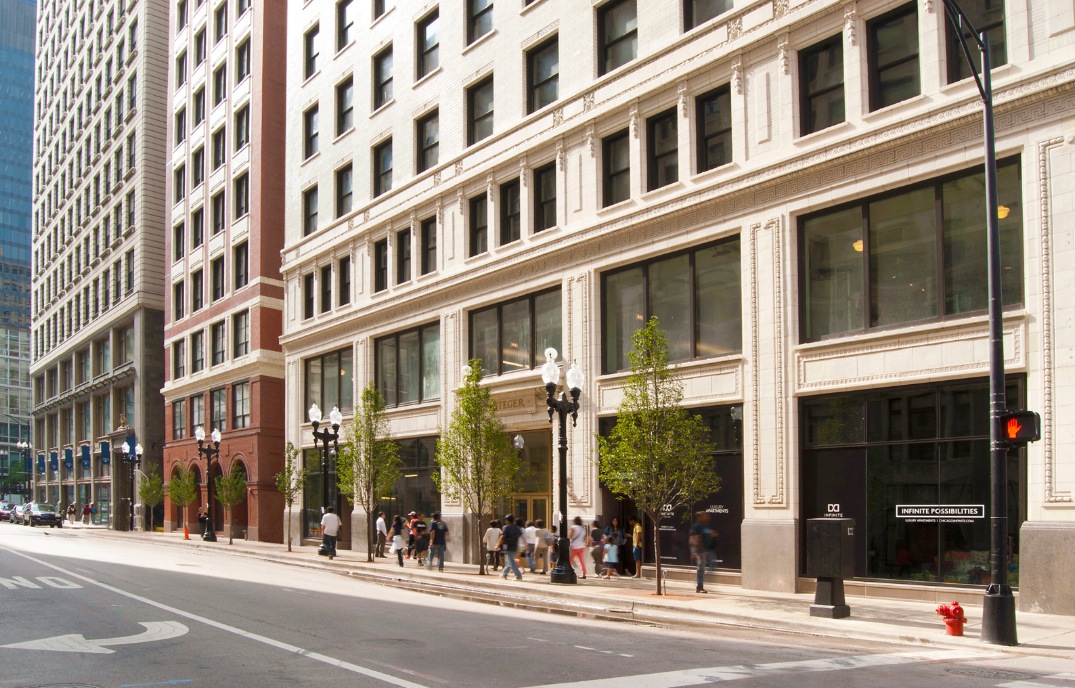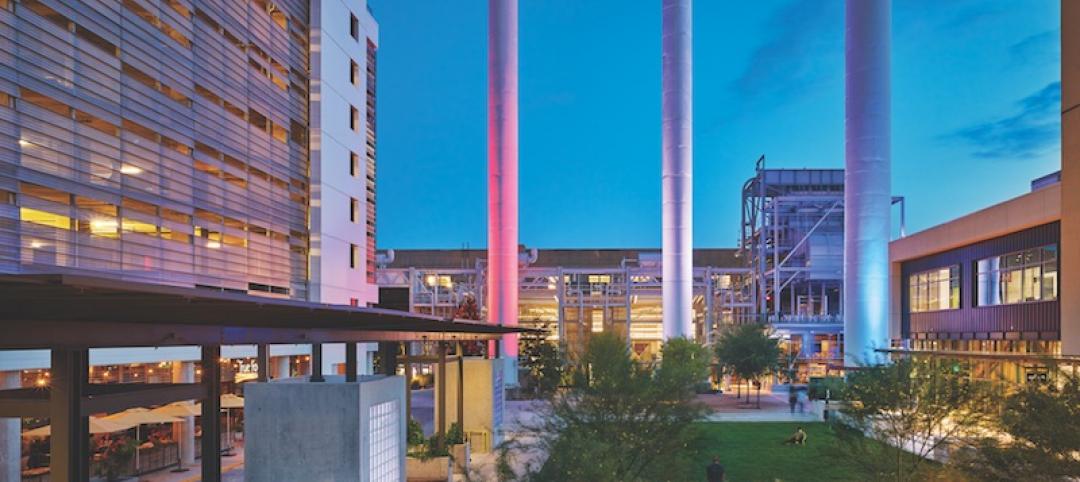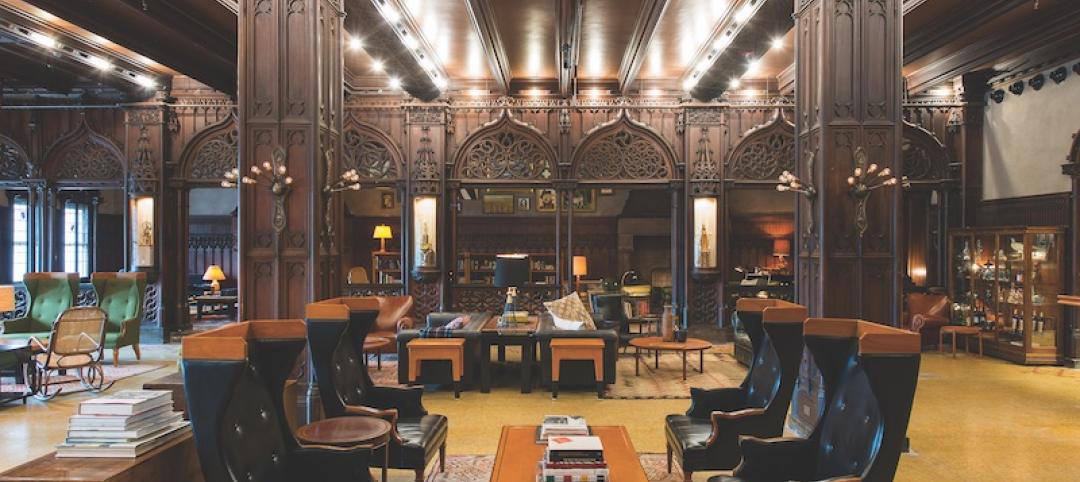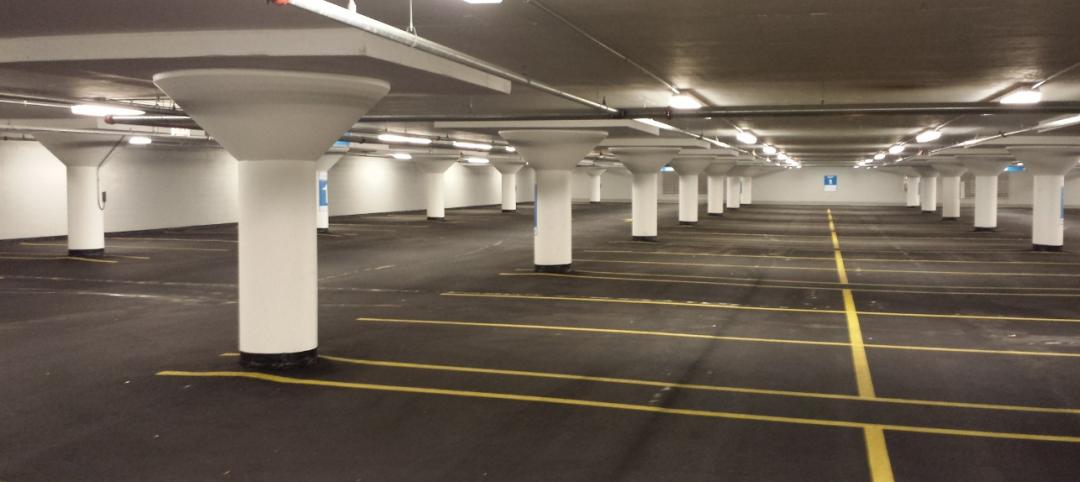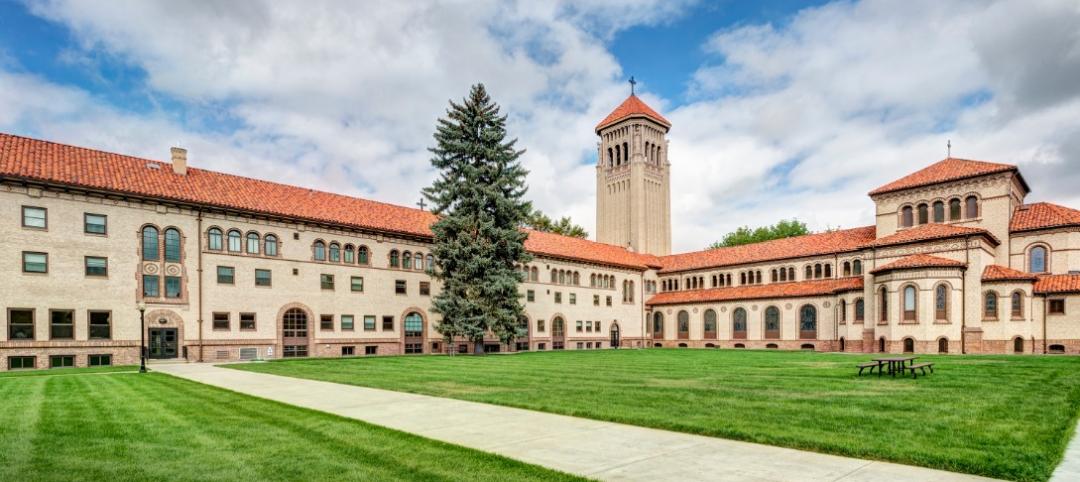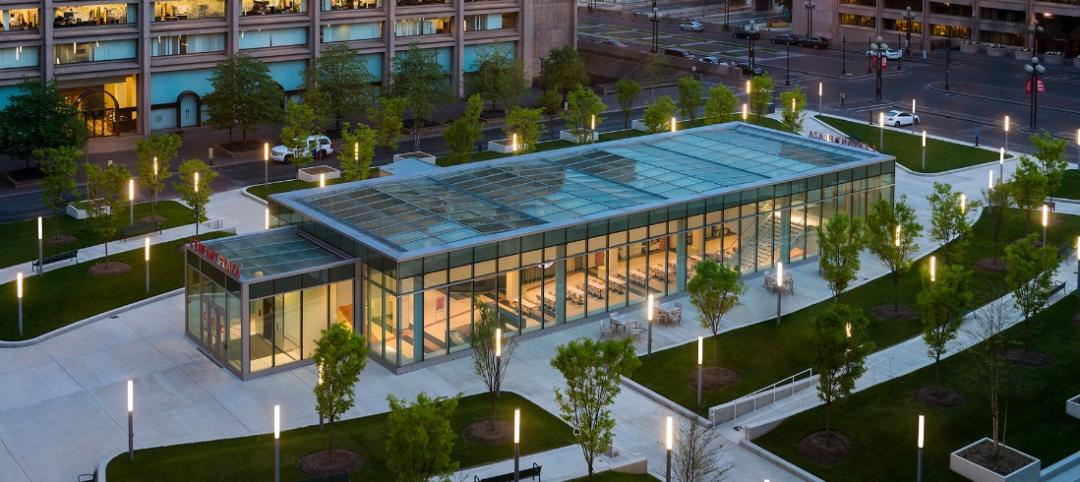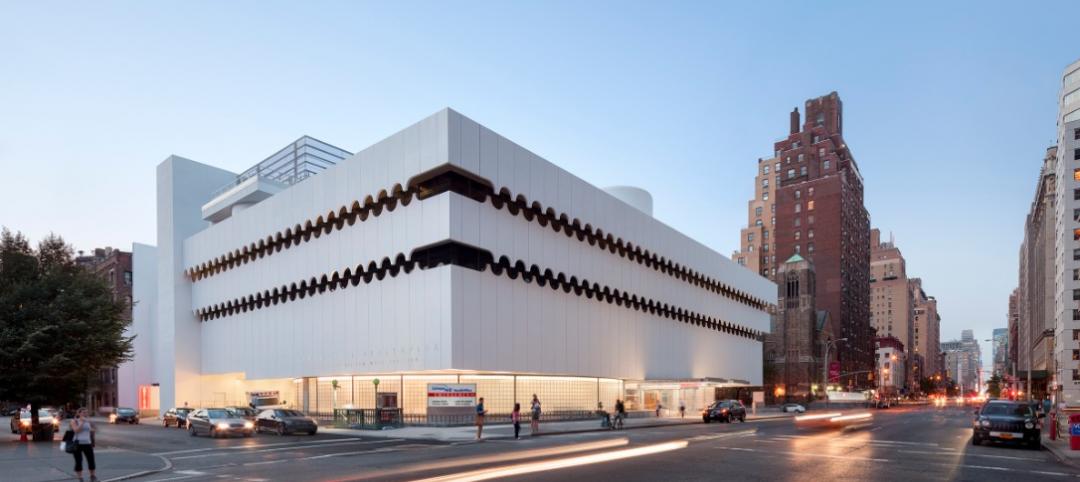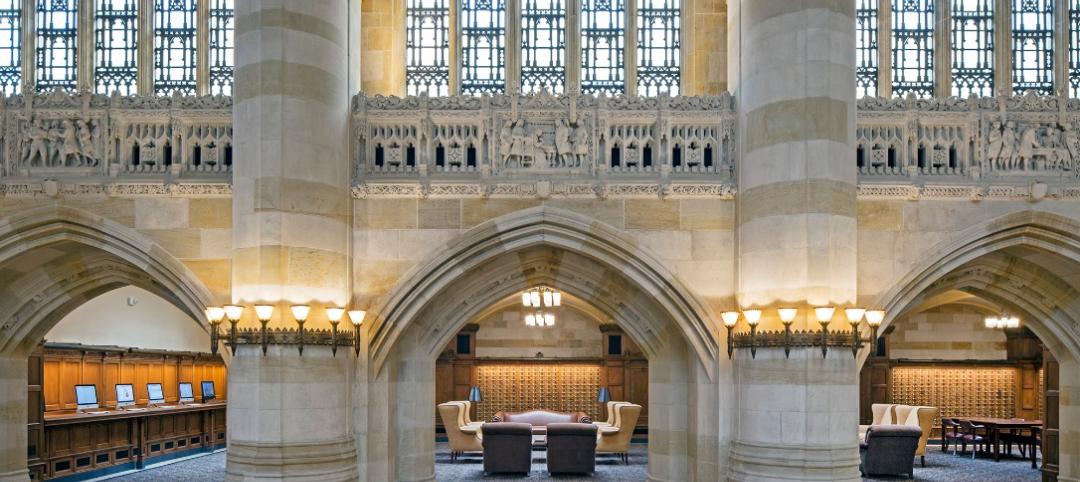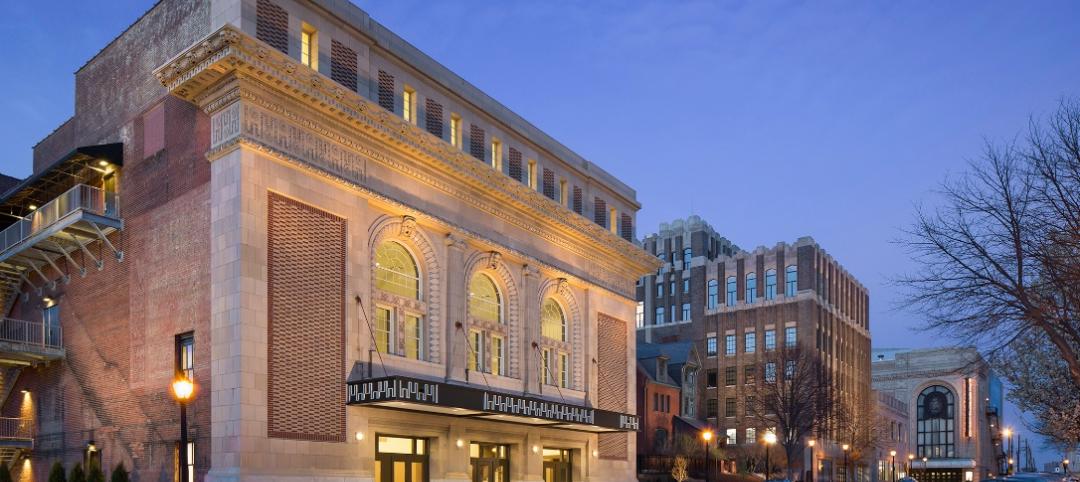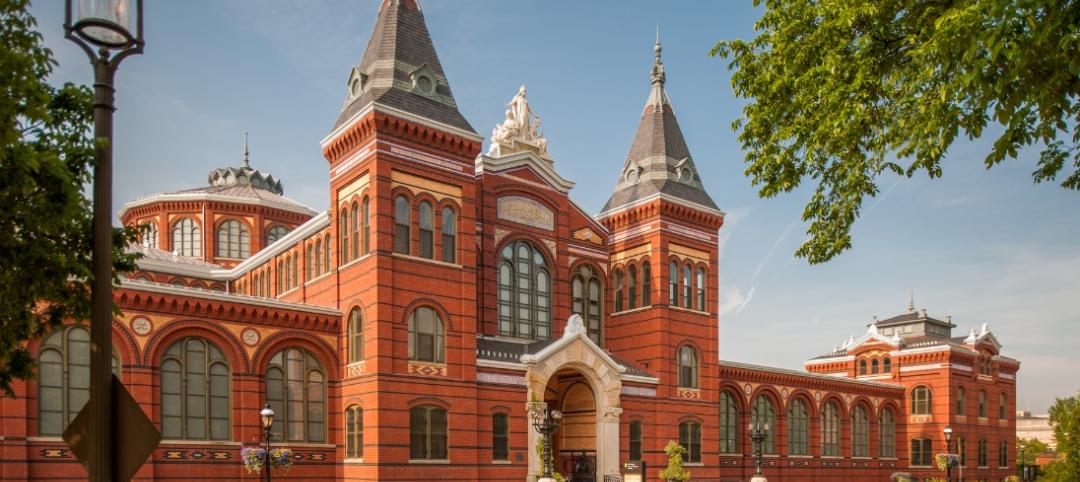Infinite Chicago is a redevelopment of three historic downtown buildings: the former Gibbons and Steger Buildings and, between them, the one-time Pickwick Stables. Prior to their renovation, all three buildings had fallen into serious disrepair and were only 40% occupied.
The buildings are located at the center of Chicago’s largest higher education campus, with several colleges and universities clustered nearby. The project repurposed the 16-story Gibbons Building and the 19-story Steger Building into 124 student living units with 409 beds.
SILVER AWARD
INFINITE CHICAGO | Chicago, Ill.
Building Team
Submitting firm: Pappageorge Haymes Partners (architect)
Owner/developer: DRI/CA Gibbons Steger (c/o CA Ventures)
Interior design: Valerio Dewalt Train Associates
Structural engineer: Stephen Kibler LLC
M/P engineer: Ewing-Doherty Mechanical, Inc.
Electrical engineer: JMS Electric, Inc.
Civil engineer: Ericksson Engineering Associates
General contractor: Linn-Mathes Inc.General Information
Size: 215,200 sf
Construction cost: $33.7 million
Construction time: January 2013 to August 2014
Delivery method: Design-bid-build
Because funding included historic tax credits, the project had to comply with the strict preservation/repair standards set by the U.S. Secretary of the Interior.
This renovation encountered its share of obstacles: substandard mechanical and electrical systems, inadequate exits, deteriorating façade, and zero lot line setback conditions. An access easement for a neighboring structure had to be worked around. The Gibbons and Steger structures practically bumped up to elevated train lines in Chicago’s Loop, which limited window and ventilation options.
The foundation under the northwest column of Steger, built in 1910, was practically nonexistent. There were no masonry ties at two of the building’s corners. Steger’s shear wall X-bracing, with its exterior moment frame, added to the project’s complexity.
The Building Team repaired the façades and replaced a five-foot terra cotta cornice at Steger with a section made from glass fiber–reinforced concrete. (Original drawings provided by the University of Texas at Austin were used to create some missing parts.) By using an offsite cooling facility, the buildings could forgo the need for large onsite electrical services and a cooling plant.
The renovation’s most noteworthy accomplishment was the addition of a bridge that connects the buildings at all floors above the fifth level. Originally conceived in steel, it was determined that a concrete structure would be best suited to the complex form, whose angular footprint derives from the required column location and ramp lengths between the structures.
With no way to get a crane into the congested site, the GC, Linn-Mathes, determined that a concrete bridge could be pumped into place and supported on a spread footing.
The bridge incorporates a rigid tie to the Steger Building, a sliding PTFE support pad at Gibbons, and an 18-inch column founded on a 19-sf spread footing. The footing fills the basement of Pickwick Stables, a three-story building between the two high-rises that was deconverted to two stories and renovated.
The bridge fulfilled the city’s access and life safety requirements and permitted the removal of three unsightly fire escapes.
The buildings’ 10,000-plus sf of street-level retail space were retained. The roof level of Gibbons was improved with a new outdoor terrace and event room. Steger’s lobby was restored. A tree-lined streetscape was added, with historically accurate storefront replacements.
The buildings feature seven residential floor plans, plus a fitness center, a business center, a club and lounge room with kitchenette, and, at Gibbons, a landscaped roof deck.
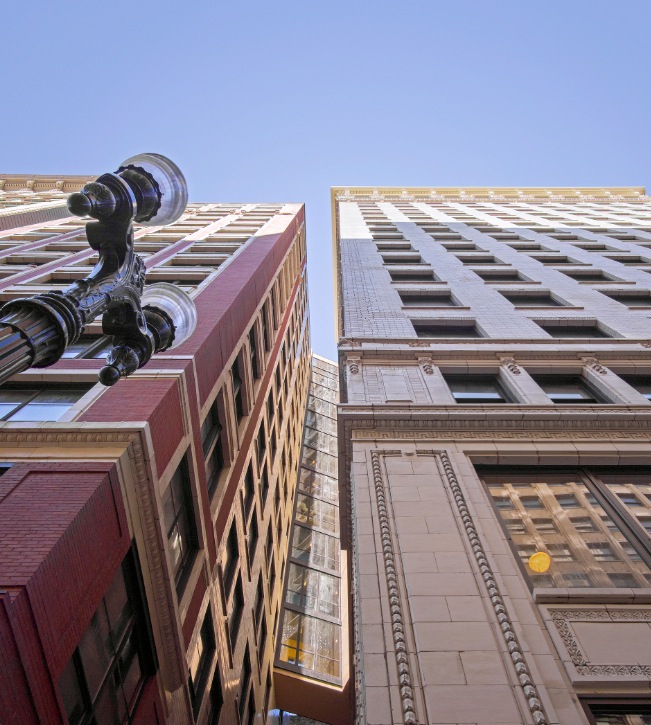 A concrete bridge connects the two buildings at all floors above the fifth level at Infinite Chicago. This allowed for the removal of three unsightly fire escapes. Photo courtesy CA Student Living.
A concrete bridge connects the two buildings at all floors above the fifth level at Infinite Chicago. This allowed for the removal of three unsightly fire escapes. Photo courtesy CA Student Living.
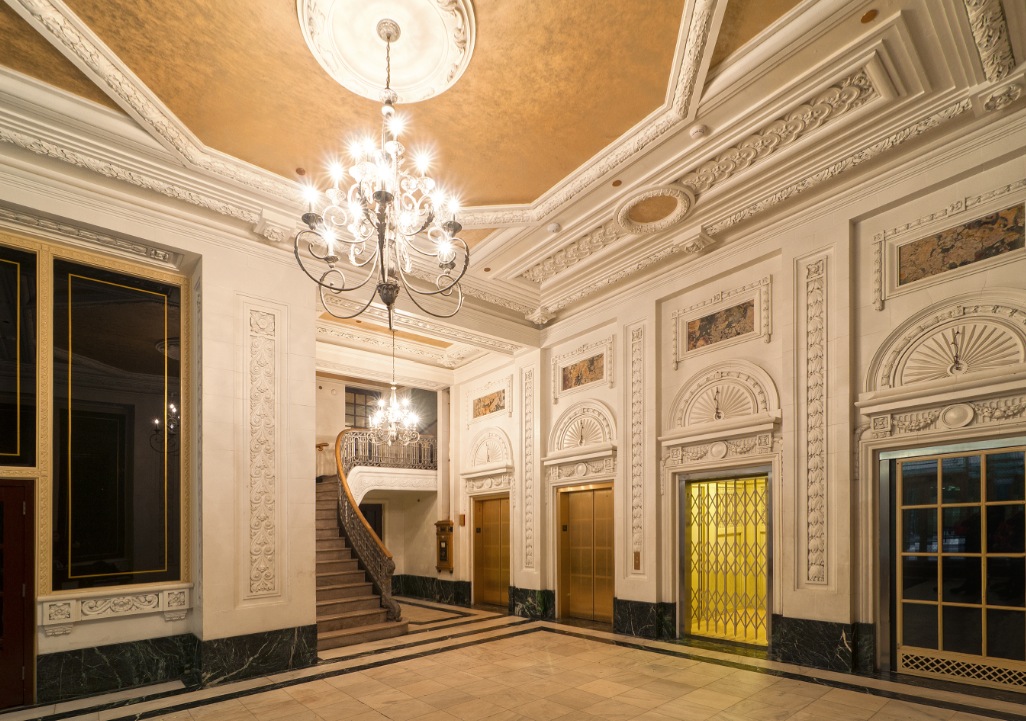 The renovated lobby of the Steger Building. Photo courtesy Pappageorge Haymes Partners.
The renovated lobby of the Steger Building. Photo courtesy Pappageorge Haymes Partners.
Related Stories
Reconstruction Awards | Nov 11, 2016
Adaptive reuse juices up an abandoned power plant
The power plant was on the National Register of Historic Places and is a Recorded Texas Historic Landmark.
Reconstruction Awards | Nov 11, 2016
Exclusive Chicago club re-emerges as a boutique hotel
Built in 1893 for the World’s Columbian Exposition, the CAA was an exclusive social club founded by leading figures in American sports and commerce.
Reconstruction Awards | Dec 1, 2015
Massive Chicago parking garage gets overdue waterproofing
Millennium Lakeside Garage, the largest underground parking facility in the U.S., hadn’t been waterproofed since the 1970s. The massive project took nearly 2½ years and 33,554 man-hours.
Reconstruction Awards | Nov 30, 2015
Washington Monument restored after 2011 East Coast earthquake
This restoration and repair project, which was completed under budget and eight days early (despite several setbacks), involved re-pointing 2.5 miles of mortar joints, repairing 1,200 linear feet of cracks, and installing 150 sf of Dutchman repairs. Construction took place from November 2011 to May 2014.
Reconstruction Awards | Nov 30, 2015
Denver's 107-year-old seminary campus modernized
The scope of the project included the seminary dorms, library, and chapel, all of which posed their own set of obstacles.
Reconstruction Awards | Nov 24, 2015
Center of I.M. Pei-designed plaza part of Washington redevelopment
The L’Enfant Plaza, a three-story below-grade mall, was renovated to include a new glass atrium pavilion and a 40-foot-long, interactive LED.
Reconstruction Awards | Nov 24, 2015
Manhattan's first freestanding emergency department a result of adaptive reuse
The Lenox Hill Healthplex, a restoration of the Curran O’Toole Building, has glass-block walls and a carefully preserved exterior.
Reconstruction Awards | Nov 19, 2015
Nave restored at Yale’s Sterling Memorial Library
Turner Construction and Helpern Architects revived the 150-foot-long nave, which was embellished with stained glass windows by G. Owen Bonawit, stone carvings by René P. Chambellan, and decorative ironwork by Samuel Yellin.
Reconstruction Awards | Nov 18, 2015
Sun Theater serves the youth of St. Louis
Lawrence Group and property owner TLG Beaux Arts raised $11 million to restore the 26,000-sf theater into a modern performance venue.
Reconstruction Awards | Nov 17, 2015
Smithsonian Institution’s Arts and Industries Building again an exposition and museum space
After removing decades’ worth of unfortunate additions to expose 17 historic interior spaces for the National Historic Landmark, the Building Team zoned in on the client’s key concern.


